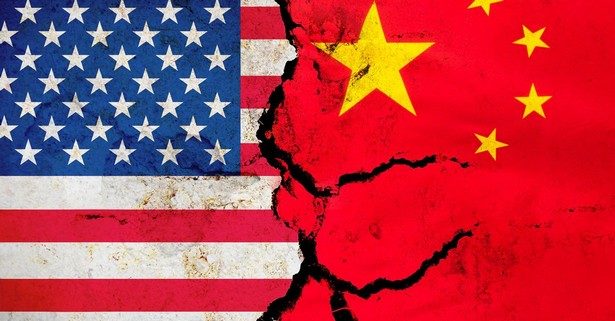Chinese tariffs will not affect American chips made outside the US
14.04.25
The trade war between the US and China is gaining new momentum. After Donald Trump imposed tariffs on countries all over the world, causing instability in financial markets, the situation stabilized for a while thanks to a 90-day pause. However, China quickly responded with mirror measures, which provoked another round of US restrictions. Today, US tariffs on Chinese goods can reach 145%, while Chinese tariffs in response have increased to 125%. In these conditions, the question remains: how will technology companies with global production chains manage to continue operating?
As it turned out, China left a loophole for the supply of technology products. According to the clarification of the China Semiconductor Industry Association (CSIA), the country of origin for all integrated circuits — both packaged and unpackaged — is considered the location of the wafer manufacturing plant. Since a significant part of American companies, such as AMD, Nvidia and Qualcomm, manufacture chips outside the US, for example, at the facilities of Taiwan’s TSMC, they will be able to continue supplying to China without paying new tariffs.
Companies that rely on their own US production are in a more difficult situation. First of all, these are Intel, but also Texas Instruments, Analog Devices (ADI) and ON Semiconductor. Their products may be subject to new tariffs. At the same time, even chips that are packaged in China but manufactured in the US may be subject to additional taxes.
According to representatives of the CSIA, such a policy should stimulate the development of domestic production chains and reduce the dependence of the Chinese technology industry on foreign components.

The technology sector is experiencing a rapid decline in capitalization amid growing chaos in the global market. The new tariff imposed by Donald Trump has caused serious shocks, and stock markets continue to decline for the second week in a row. Updated US tariff rules came into effect at the beginning of this week, which increased pressure on the global economy. The American president has imposed high tariffs on imports from almost all countries, temporarily leaving an exception only for semiconductors. However, new restrictions may be introduced in this segment in the coming days, which threatens the stability of supply chains for many technology companies.
The situation has particularly affected Asian markets, where the biggest drop since 2008 is recorded. Shares of such giants as TSMC, Samsung, SK Hynix and Foxconn Technology are losing significantly in value. At the same time, pressure is also growing on the American market: the securities of Nvidia, Apple, Amazon, Microsoft, Meta, AMD, Intel and other leading players continue to fall in price. Nvidia has recorded the largest losses – since the beginning of the year its shares have depreciated by more than 30%. Apple will record a capitalization drop of about 26% for the year.
Experts warn of a rapid increase in prices for consumer electronics in the US. It is expected that the price of the flagship smartphone iPhone 16 Pro Max with 1 TB of memory may increase from $ 1,599 to $ 2,300. Companies are already reacting to new risks: Nintendo has postponed the start of orders for the Switch 2 console, and even the most optimistic forecasts no longer count on stabilizing prices for video cards. The consequences will be felt not only by US buyers – global markets will also face unpleasant changes.
The cryptocurrency market has also come under pressure as the crisis deepens. Bitcoin fell to $75,000 today, a significant retreat from its January record, when the cryptocurrency’s value almost reached $110,000. The decline has also affected other digital assets, which has only intensified the wave of instability amid the growing crisis.
Don't miss interesting news
Subscribe to our channels and read announcements of high-tech news, tes
Oppo A6 Pro smartphone review: ambitious

Creating new mid-range smartphones is no easy task. Manufacturers have to balance performance, camera capabilities, displays, and the overall cost impact of each component. How the new Oppo A6 Pro balances these factors is discussed in our review.
Oppo Reno 15 5G smartphone review: confident

The Oppo Reno15 smartphone emphasizes design, a high-quality display, versatile cameras, and good battery life. Let’s take a closer look.
Amazfit T-Rex Ultra 2 – rugged watch with a titanium case and an 870 mAh battery Amazfit protection smart watches
Kkey upgrade of the Amazfit T-Rex Ultra 2 is the 870 mAh battery. This is a 74 percent increase compared to the previous T-Rex Ultra model, which was equipped with a 500 mAh battery.
Asus has released a laptop with Windows 11 pure OS Asus laptop Windows
Asus ExpertBook B5 G2 was introduced as a Copilot+ PC class device as part of the company’s business announcement, but the mention of a pure version of the system was not publicly emphasized.


